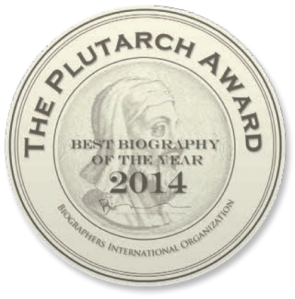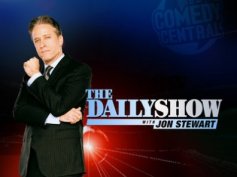 “In September 2003, I suggested to John’s widow, Yoko Ono, that I should become his biographer,” writes Philip Norman in the Acknowledgements section of John Lennon: The Life. However, after reading the final manuscript, “Yoko Ono was upset by the book,” Norman tells us, “and would not endorse it . . . [saying] I had been ‘mean to John.'”
“In September 2003, I suggested to John’s widow, Yoko Ono, that I should become his biographer,” writes Philip Norman in the Acknowledgements section of John Lennon: The Life. However, after reading the final manuscript, “Yoko Ono was upset by the book,” Norman tells us, “and would not endorse it . . . [saying] I had been ‘mean to John.'”
I actually don’t think Yoko’s got anything to worry about; Norman’s book is both clear-eyed and appropriately sympathetic as it traces the arc of Lennon’s all-too-brief life and career. While there’s much in here that’s familiar, Norman uses both old and new sources to revisit apocryphal or second-hand stories — most of which are familiar to Beatle fans — and determine their veracity. He puts to rest, for example, the Did they or didn’t they? question that has surrounded Lennon’s vacation in Spain with manager Brian Epstein (they didn’t), and accepts as fact many of the stories that expose John’s darker side, such as his brutal beating of Cavern DJ Bob Wooler, or the lurid sexual fantasies involving his own mother.
There’s also quite a bit that’s new in here, too — or, at least, was unfamiliar to me. Norman explores, for example, exactly what “business” Yoko was doing during Lennon’s househusband years — she was dealing mostly in mundane real estate transactions, but is also given full credit for shrewdly negotiating music contracts that maximized John’s profits and protected his copyrights. He also examines some of the theater pieces that were based on Lennon’s writings in the 1960s — a hidden gem in the literate Beatle’s career — exposes a charming addiction to board games, and explains about as well as one can the complicated legal wranglings that finally dissolved the band and led to years of hard feelings.
For perhaps the first time, too, some of the supporting characters in Lennon’s story finally come into their own. John’s Aunt Mimi — who can often come off as a bit of a shrew — gets a bit of her own narrative, as Norman uses letters Mimi wrote regularly to a young female fan named Jane Wirgman to reveal just how thoughtful and protective of John Mimi could be, even as she continued to be embarrassed by his antics or appearance. You’ll also have a better understanding of Freddie Lennon, John’s seaman father who abandoned his wife and son, then rematerialized after John made it big. Freddie has his own reasons — excuses — for his actions, but for the first time, you’ll have his own words and private correspondence to help you decide whether you buy it or not.
If there’s a complaint I have about this otherwise thorough biography, it lies in Norman’s narrative voice. Norman’s prose isn’t ever stilted — he’s too good a journalist for that — but it can be somewhat stodgy (he calls the lyrics to “Twist and Shout,” for example, “dippy”). He also inserts way too many clunky moments of foreshadowing of Lennon’s fate, often resorting to eye-rollingly lame declarations of irony that are a stretch, at best.
For example, as the Beatles frolic for a photo session in New York during their first American tour in 1964, Norman can’t help but indulge in dramatic voiceover. “Hindsight gives this routine scene a horrible irony,” he writes. “Just across the park lies a craggy Gothic pile known as the Dakota Building” where John would be shot to death in 1980. Later, Norman tell us that for the 1972 U.S. Presidential campaign, “John pinned high hopes on the Democratic candidate, George McGovern, senator for South Dakota — an omen if ever there was one . . . ” It took me a moment to figure out why this was “an omen” — until I realized it was the use of the word “Dakota” in the sentence that was supposed to be so ominous.
Perhaps even more annoying — especially to the biographer in me — there’s no sign of a bibliography, sources, or endnotes, only an index. There were several times in Norman’s book when I found myself saying “Where’d you get that?” and turned to the back looking for his source, only to come up blank. Perhaps, at 851 pages, there simply wasn’t enough room left. But I’m sure I’m not the only one missing it.


 One of the best things about being a member of Biographers International Organization (BIO) is that each year, we get to vote for the recipient of the Plutarch Award, presented to the best biography of the year.* This is the only international literary award given by biographers to biography, which makes it pretty neat. (It was inspired in part by the Edgar Award, presented each year by the Mystery Writers of America, and the Nebula, given annually by the Science Fiction Writers of America.)
One of the best things about being a member of Biographers International Organization (BIO) is that each year, we get to vote for the recipient of the Plutarch Award, presented to the best biography of the year.* This is the only international literary award given by biographers to biography, which makes it pretty neat. (It was inspired in part by the Edgar Award, presented each year by the Mystery Writers of America, and the Nebula, given annually by the Science Fiction Writers of America.) The second annual conference of the Biographers International Organization (BIO) is now officially one week away, on Saturday, May 21, at the National Press Club (and several other sites, such as the Library of Congress and National Archives) right here in beautiful Washington, DC. If you’re a biographer, an aspiring biographer, or someone who enjoys biographies, you should be here.
The second annual conference of the Biographers International Organization (BIO) is now officially one week away, on Saturday, May 21, at the National Press Club (and several other sites, such as the Library of Congress and National Archives) right here in beautiful Washington, DC. If you’re a biographer, an aspiring biographer, or someone who enjoys biographies, you should be here.







